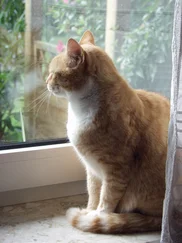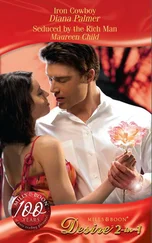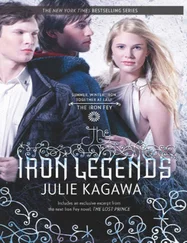'That is why you should not be so alone. Because I may have to go away entirely.'
He sat on the bed with his back to me, bent over, gripping the dog's head between his knees, stroking it.
'Do you understand me?'
'Mm.' The mm that could mean yes but in fact means nothing.
'No, you don't. You don't understand at all. It is not the prospect of your solitude that appals me. It is the prospect of my own.'
Every day he goes off to do the shopping. In the evenings he cooks, then hovers over me, watching to see that I eat. I am never hungry but haven't the heart to tell him. 'I find it hard to eat while you watch,' I say as gently as I can, then hide the food and feed it to the dog.
His favourite concoction is white bread fried in egg with tuna on the bread and tomato sauce on the tuna. I wish I had had the foresight to give him cooking lessons.
Though he has the whole house to spread himself in, he lives, in effect, with me in my room. He drops empty packets, old wrapping papers on the floor. When there is a draught they scud around like ghosts. 'Take the rubbish away,' I plead. 'I will,' he promises, and sometimes does, but then leaves more.
We share a bed, folded one upon the other like a page folded in two, like two wings folded: old mates, bunkmates, conjoined, conjugal. Lectus genialis, lectus adversus. His toe-nails, when he takes off his shoes, are yellow, almost brown, like horn. Feet that he keeps out of water for fear of falling: falling into depths where he cannot breathe. A dry creature, a creature of air, like those locust-fairies in Shakespeare with their whipstock of cricket's bone, lash of spider-film. Huge swarms of them borne out to sea on the wind, out of sight of land, tiring, settling one upon another upon another, resolving to drown the Atlantic by their numbers. Swallowed, all of them, to the last. Brittle wings on the sea-floor sighing like a forest of leaves; dead eyes by the million; and the crabs moving among them, clutching, grinding.
He snores.
From the side of her shadow husband your mother writes, Forgive me if the picture offends you. One must love what is nearest. One must love what is to hand, as a dog loves.
Mrs V.
September 23, the equinox. Steady rain falling from a sky that has closed in tight against the mountain, so low that one could reach up with a broomstick and touch it. A soothing, muffling sound, like a great hand, a hand of water, folding over the house; the patter on the rooftiles, the ripple in the gutters ceasing to be noise, become a thickening, a liquefaction of the air.
'What is this?' asked Vercueil.
He had a little hinged rosewood case. Held open at a certain angle to the light, it reveals a young man with long hair in an old-fashioned suit. Change the angle, and the image decomposes into silver streaks behind a glass surface.
'It is a photograph from the olden days. From before photographs.'
'Who is it?'
'I am not sure. It may be one of my grandfather's brothers.'
'Your house is like a museum.'
(He has been poking around in the rooms the police broke into.)
'In a museum things have labels. This is a museum where the labels have fallen off. A museum in decay. A museum that ought to be in a museum.'
'You should sell these old things if you don't want them.'
'Sell them if you like. Sell me too.'
'For what?'
'For bones. For hair. Sell my teeth too. Unless you think I am worth nothing. It's a pity we don't have one of those carts that children used to wheel the Guy around in. You could wheel me down the Avenue with a letter pinned to my front. Then you could set fire to me. Or you could take me to some more obscure place, the rubbish dump for instance, and dispose of me there.'
He used to go out on to the balcony when he wanted to smoke. Now he smokes on the landing and the smoke drifts back into my room. I cannot stand it. But it is time to begin getting used to what I cannot stand.
He came upon me washing my underwear in the basin. I was in pain from the bending: no doubt I looked terrible. 'I will do that tor you,' he offered. I refused. But then I could not reach the line, so he had to hang it for me: an old woman's underwear, grey, listless.
When the pain bites deepest and I shudder and go pale and a cold sweat breaks out on me, he sometimes holds my hand. I twist in his grip like a hooked fish, I am aware of an ugly look on my face, the look people have when they are rapt in lovemaking: brutal, predatory. He does not like that look; he turns his eyes away. As for me, I think: let him see, let him learn what it is like!
He carries a knife in his pocket. Not a clasp knife but a menacing blade with a sharp point embedded in a cork. When, he gets into bed he puts it on the floor beside him, with his money.
So I am well, guarded. Death would think twice before trying to pass this dog, this man.
What is Latin? he asked.
A dead language, I replied, a language spoken by the dead. 'Really?' he said. The idea seemed to tickle him. 'Yes, really,' I said. 'You only hear it at funerals nowadays. Funerals and the odd wedding.' 'Can you speak it?' I recited some Virgil, Virgil on the unquiet dead:
nec ripas datur horrendas et rauca fluenta
transportare prius qaum sedibus ossa quierunt.
centum errant annos volitantque haec litora circum;
tum demum admissi stagna exoptata revisunt.
'What does it mean?' he said.
'It means that if you don't mail the letter to my daughter I will have a hundred years of misery.'
'It doesn't.'
'Yes, it does. Ossa: that is the word for a diary. Something on which the days of your life are inscribed.'
Later he came back. 'Say the Latin again,' he asked. I spoke the lines and watched his lips move as he listened. He is memorizing, I thought. But it was not so. It was the dactyl beating in him, with its power to move the pulse, the throat.
'Was that what you taught? Was that your job?'
'Yes, it was my job. I made a living from it. Giving voice to the dead.'
'And who paid you?'
'The taxpayers. The people of South Africa, both great and small'
'Could you teach me?'
'I could have taught you. I could have taught you most things Roman. I am not so sure about the Greek. I could still teach you, but: there would not be time for everything.'
He was flattered, I could see.
'You would find Latin easy,' I said. 'There would be much you remembered.'
Another challenge issued, another intimation that I know. I am like a woman with a husband who keeps a mistress on the sly, scolding him, coaxing him to come clean. But my hints pass him by. He is not 'hiding anything. His ignorance is real. His ignorance, his innocence.
'There is something that won't come, isn't there?' I said. 'Why don't you just speak, and see where the words take you?'
But he was at a threshold he could not cross. He stood baulked, wordless, hiding behind the cigarette smoke, narrowing his eyes so that I should not see in.
The dog circled him, came to me, drifted off again, restless.
Is it possible that the dog is the one sent, and not he?
You will never get to see him, I suppose. I would have liked to send you a picture, but my camera was taken in the last burglary. In any case, he is not the kind of person who photographs well. I have seen the picture on his identity card. He looks like a prisoner torn from the darkness of a cell, thrust into a room full of blinding lights, shoved against a wall, shouted at to stand still. His image raped from him, taken by force. He is like one of those half-mythical creatures that come out in photographs only as blurs, vague forms disappearing into the undergrowth that could be man or beast or merely a bad spot on the emulsion: unproved, unattested. Or disappearing over the edge of the picture, leaving behind in the shutter-trap an arm or a leg or the back of a head.
Читать дальше












